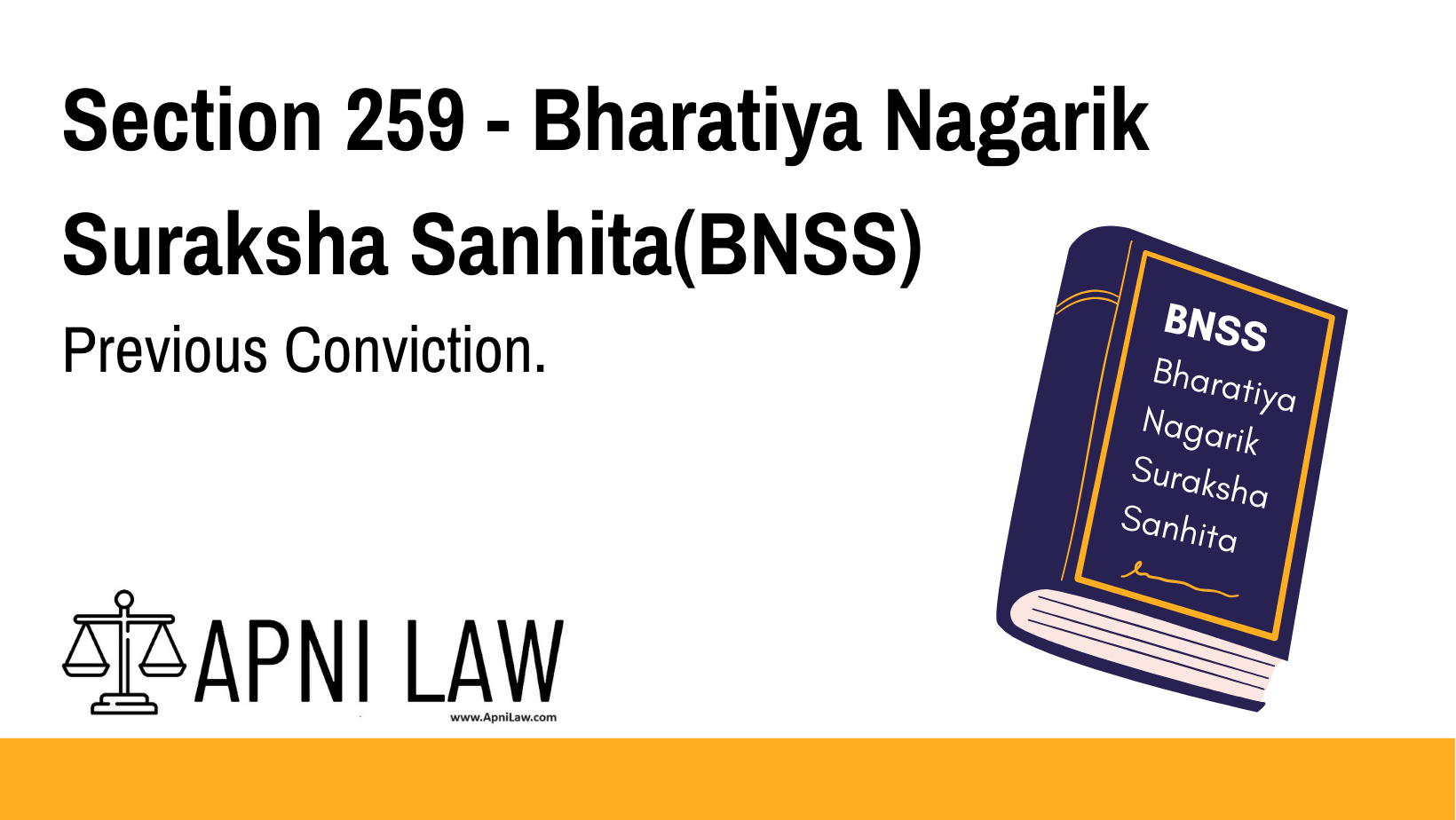Code:
In a case where a previous conviction is charged under the provisions of sub-section (7) of section 234, and the accused does not admit that he has been previously convicted as alleged in the charge, the Judge may, after he has convicted the said accused under section 252 or section 258, take evidence in respect of the alleged previous conviction, and shall record a finding thereon:
Provided that no such charge shall be read out by the Judge nor shall the accused be asked to plead thereto nor shall the previous conviction be referred to by the prosecution or in any evidence adduced by it, unless and until the accused has been convicted under section 252 or section 258.
Explanation:
This section deals with the procedure for proving a previous conviction in cases where the accused denies it. It applies when the prosecution charges the accused under Section 234(7) of the BNSS, alleging a prior conviction. This section lays out the following steps:
Accused’s Denial: If the accused denies the previous conviction as alleged in the charge, the Judge will proceed with the trial.
Conviction under Section 252 or 258: After convicting the accused under either Section 252 (Punishment for assault or criminal force) or Section 258 (Punishment for wrongful restraint), the Judge can then take evidence regarding the alleged previous conviction.
Finding on Previous Conviction: The Judge will record a finding on whether the accused was indeed previously convicted as charged.
Protection of the Accused: To protect the accused’s right to a fair trial, the section includes a proviso:
The charge of previous conviction will not be read out to the accused.
The accused will not be asked to plead to the charge of previous conviction.
The prosecution cannot refer to the previous conviction in its evidence until the accused is convicted under Section 252 or 258.
Illustration:
Suppose someone is charged with assault under Section 252 of the BNSS. The prosecution also alleges that the accused was previously convicted of a similar offense under Section 234(7). The accused denies the previous conviction. The Judge will first proceed with the trial for assault and convict the accused under Section 252. After this conviction, the Judge can then take evidence regarding the alleged previous conviction and record a finding. During the trial, the prosecution cannot mention the previous conviction until after the accused is convicted of assault.
Common Questions and Answers:
Q: Why is this section important?
- A: This section ensures that the accused is not prejudiced by the charge of a previous conviction before their guilt in the current case is established. It safeguards the accused’s right to a fair trial.
Q: What happens if the Judge finds that the accused was previously convicted?
- A: The Judge can then take this finding into account when determining the sentence for the current offense. Under Section 234(7), the previous conviction can lead to a more severe punishment.
Q: Can the accused challenge the Judge’s finding on the previous conviction?
- A: Yes, the accused can appeal the Judge’s finding. The appeal court can review the evidence and decide whether the finding is justified.








